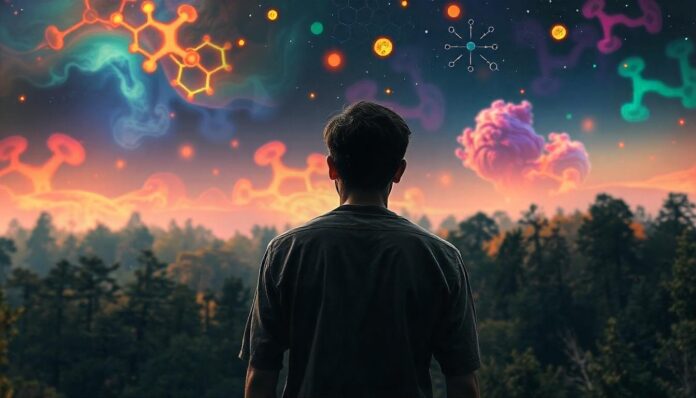The groundbreaking investigations into the use of psychedelics for treating alcoholism are offering a beacon of hope for those struggling with alcohol use disorder (AUD). Recent studies suggest that substances like psilocybin and LSD could fundamentally alter how we approach addiction treatment.
Exploring psilocybin for AUD treatment
A recent study by the University of Copenhagen and coauthored by National Institute on Drug Abuse Director Nora Volkow illustrated promising outcomes. Involving 10 treatment-seeking adults with severe AUD, the study found that a single 25-milligram dose of psilocybin led to a significant decrease in alcohol consumption over 12 weeks.
Participants reported reduced cravings almost immediately after taking psilocybin, sustaining this lowered desire for alcohol across the study period. Furthermore, they experienced an increased sense of self-efficacy or confidence in their ability to abstain from drinking, which also persisted throughout the duration of the research.
Detailed results and implications
Remarkably, even four weeks after administration, nine out of ten participants had considerably decreased their daily drink count. By the 12-week mark, seven participants still showcased a notable reduction in alcohol intake. These improvements were achieved without significant changes in depressive symptoms, psychological flexibility, or mindfulness traits.
This open-label study underscores the potential of psilocybin as a feasible, safe, and efficient means of enhancing drinking outcomes in individuals with AUD. However, it should be noted that the small sample size and the absence of a control group limit the generalizability of these findings.
Analyzing classic psychedelics’ role in addiction therapy
Another study published in Progress in Neuro-Psychopharmacology and Biological Psychiatry examined past research concerning classic psychedelics like psilocybin and LSD. It concluded that these substances hold promise in treating drug addiction due to their ability to modulate neuroplasticity in the brain. Importantly, these psychedelics do not induce physical dependence or withdrawal symptoms with repeated use.
Yet, the results of psychedelic-assisted treatments show considerable variability among individuals. Some patients experience lasting positive effects from just one dose, while others may require different dosages or treatment protocols to achieve similar benefits.
Current and future research directions
Despite early indications of the profound benefits of psychedelic-assisted therapy, more research is required to refine treatment methods. National Institutes of Health (NIH) initiatives are currently funding further investigations aimed at understanding the full potential of these drugs in combating addiction.
For example, NIH’s recently announced grant aims to explore new therapeutic avenues amidst rising fatalities linked to methamphetamine and other stimulants. This follows earlier breakthroughs that have shed light on how psychedelics might unlock new pathways in addiction treatment.
The path forward
While the initial results are compelling, the diversity in individual responses to psychedelic treatment highlights the need for larger, placebo-controlled trials to draw definitive conclusions. As studies continue to explore varied doses and experimental settings, the hope is to establish robust clinical guidelines for using psychedelics in addiction therapy.
With federal backing and increasing scientific interest, the future looks promising for incorporating psychedelics into mainstream addiction treatment paradigms, potentially revolutionizing how we tackle substance use disorders.


